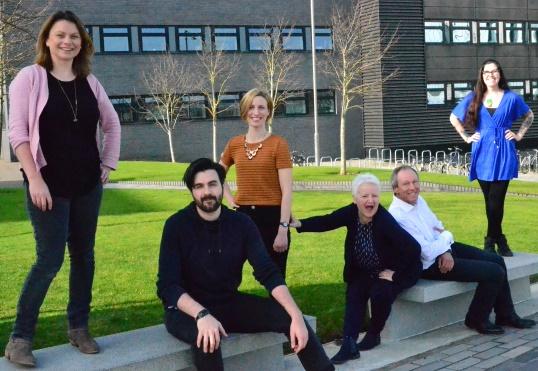Students as Colleagues: too good to be true?
Many of us are proud of our tough-minded scepticism. To interrogate the simple blandishments, self-serving platitudes and tendentious rhetoric that saturate our public and professional lives is a defining feature of our roles as academics. No fools us! But healthy scepticism can sour and fester into cynicism. As GK Chesterton observed, gullibility is the key to all adventures, and whilst the naïf may be taken in by life, the sceptic risks being cast out of it. I remember struggling with such thoughts when I first read the works of Michael Fielding, Alison Cook-Sather, Cathy Bovill and other pioneers and defenders of radical, democratic co-creation with students. These engaging writers use sweeping, euphoric language to describe the possibilities of true partnership; how it can lead to ‘joyful transformation’ and act to ‘uphold democratic community’. Who could say no? But surely such language is suspect in our wearily consumerist age?
So my excitement at designing and launching ‘Students as Colleagues’ (SaC), a programme inspired by the students-as-partners literature, was tempered by anticipatory self-criticism (“don’t get carried away now, Mark. If it sounds too good to be true, then…”). It was a good job that I worked with people like Jenny Scoles, who had such extraordinary energy and belief that such doubts could not get in our way. The idea of SaC is simple to explain but complicated to enact; recruiting student volunteers and giving them the training and support they need to act as effective evaluators of teaching practices, providing feedback to academics working in disciplines different from their own. Why do such a thing? After all, aren’t traditional peer observation of teaching and student evaluation questionnaires (not to mention the NSS) sufficient sources of feedback on our teaching? I always thought they were not, and our experiences with SaC show I was right.
More than the sum of the parts
If you want to know what it is like to be a learner in your institution and how that experience could be enriched, it makes sense to ask an expert – a student! This is partly for the obvious reasons; your students are directly experiencing life as learners and must be the chief beneficiaries of teaching. But as feminist standpoint theory taught us there are more subtle reasons too; those at the bottom of a hierarchy understand how power operates in different and more perceptive ways than those at the top. You think your module is popular because of your witty and lucid exposition of Romanticism? Maybe. Or maybe it’s because students know you are a soft marker with a weakness for Mary Shelley that can be productively mined for marks in your unimaginative assessments? How will you discover that from your module evaluations?
We found that students, properly trained and supported, gave feedback to academics that was often better, in terms of clarity, insight, support and volume, than the evaluations they received from their academic peers (see Huxham et al., 2016). That was a revelation. The idea that useful feedback requires years of academic experience and expertise is simply wrong; in fact, long immersion in the professional nuances of a discipline can be a barrier to providing useful comments from one academic to another. But the impacts of the SaC programme radiated way beyond this in ways in which we had not expected.
‘The whole point of this is that we step into a new space together’
By deliberately transgressing boundaries between lecturers and students, SaC allows the strange, the unexpected and the wonderful to happen. A major theme in reflections from students involved is the humanisation of an apparently inflexible system. As one said, SaC allowed a view ‘behind the magic mirror’ of teaching to reveal the fraught, thoughtful, anxious and passionate humans lurking behind. Student volunteers were able to reassure and encourage academics once they saw the concern and anxiety that some teaching elicited. The ‘new space’ that SaC creates, of personal encounters through respectful dialogue, is one that recognises and values differences; we are not training students to be mini-academics or promoting the idea that anything a student says has value simply because of their status. Rather we strive to support honest exchange in which both perspectives are equal and where the focus is a better learning community for all; this is radical collegiality. And it can be done, sometimes to the joyful surprise of volunteers who find themselves ‘taken seriously as professionals’ for the first time. By bringing students into classes to evaluate them, in a novel and very public way, the programme also communicates a general message about the value of teaching and the efforts staff are going to in order to improve.
So have I set aside all my scepticism? Of course not! But the endorsement of our work by Advance HE through a Collaborative Award for Teaching Excellence (CATE) is a wonderful reassurance that others can see the value of what we are doing. I have been reminded of a simple truth; that good teaching is founded on good relationships and that most people yearn to work together for collective good. Are you feeling sceptical? That is only right and proper (you are probably an academic after all). But why not try a little radical collegiality in your own teaching? I think you will be pleasantly surprised.

Mark Huxham is Professor of Teaching and Research in Environmental Biology in the School of Applied Sciences, Edinburgh Napier University. He likes slippery, uncertain, in-between places, like mangrove forests and the scholarship of pedagogy.